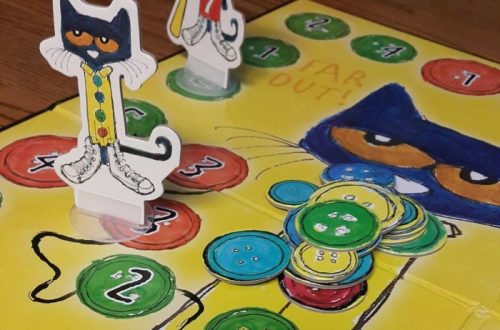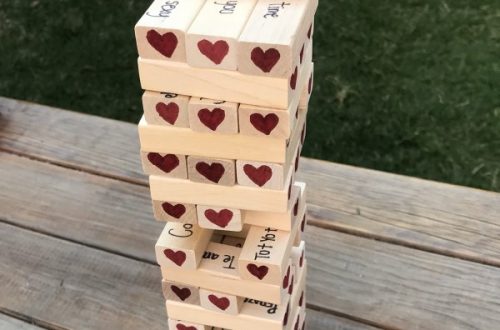The Science of Puzzles and Mental Fitness
Are puzzles good for your brain? The brain is like a muscle. To keep it fit and functional, it needs exercise. Puzzles offer a form of mental workout that pushes the brain to problem-solve, analyze patterns, and work through complex scenarios. Here’s how puzzles play a crucial role in maintaining and improving our mental fitness:
- Cognitive Exercise: Engaging in puzzles is a cognitively demanding process that can boost brain activity and improve mental sharpness.
- Neural Connections: Solving puzzles helps forge and strengthen neural connections, enhancing the speed and quality of neural synapses.
- Mental Resilience: Regular puzzle-solving creates mental resilience, enabling the brain to cope better with challenges and stress.
- Dopamine Release: The act of solving puzzles triggers a release of dopamine, the feel-good neurotransmitter, contributing to better mood and motivation.
Research has shown that puzzles such as crosswords, jigsaws, and Sudoku can increase brain activity in regions responsible for memory and attention. When we work on a puzzle, we engage multiple cognitive abilities, including perception, memory, and reasoning. As we age, these activities can help to keep our minds alert and fend off cognitive decline.
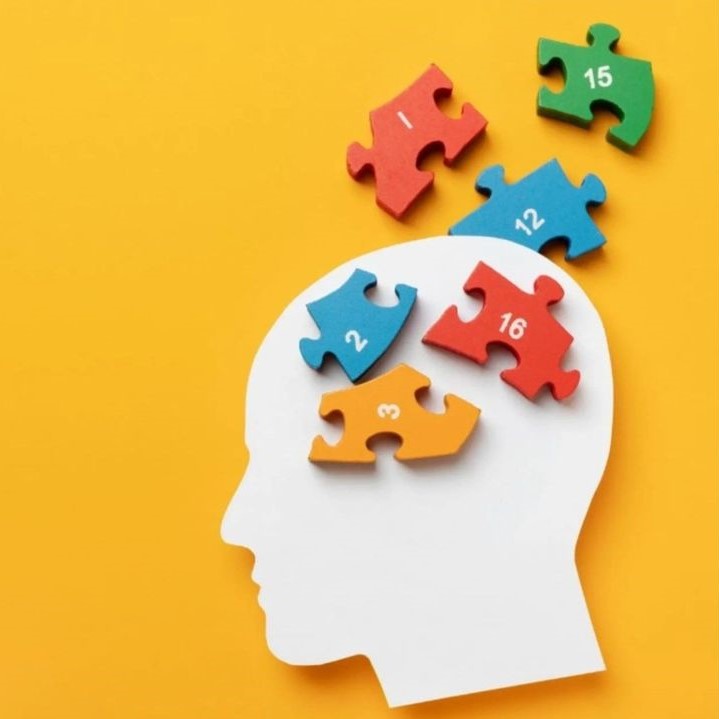
By integrating puzzles into our daily lives, we give our brains the opportunity to engage in a fun and stimulating activity that is not only rewarding but is also beneficial for long-term brain health. The key takeaway is that puzzles are not just playful pastimes — they are powerful tools in maintaining mental fitness and, surely, are puzzles good for your brain.
Types of Puzzles and Their Cognitive Benefits
Various puzzle types each offer unique cognitive benefits. Understanding these can encourage informed decisions about which puzzles to incorporate into your routine.
- Crossword Puzzles: Enhance vocabulary and language skills while also improving problem-solving abilities and memory.
- Jigsaw Puzzles: Develop spatial awareness and visual-perception skills, and they require attention to detail and patience.
- Sudoku: Strengthens logic and pattern recognition capabilities, along with concentration and memory.
- Logic Puzzles: Improve critical thinking and deductive reasoning, pushing you to go beyond surface-level answers.
- Word Searches: Promote word recognition and are beneficial for quick scanning and pattern identification.
- Brain Teasers: Flex mental agility and creativity, as they often involve thinking outside the box.
- Math Puzzles: Foster numerical skills, logical reasoning, and the ability to process complex information quickly.
Each puzzle type engages the brain in different ways, but they all contribute to mental sharpness and cognitive wellness. Incorporating a variety of puzzles into your daily life can lead to a more comprehensive mental exercise. When you ask, ‘are puzzles good for your brain’, the diverse cognitive benefits they offer provide a resounding yes. By training different brain areas, puzzles not only are enjoyable, but they also support a range of cognitive functions essential for daily life.
How Puzzles Improve Memory and Problem-Solving Skills
Puzzles challenge the mind and sharpen our memory and problem-solving abilities. When we solve puzzles, we recall shapes, words, or patterns. This process bolsters our short-term memory. Consistent practice with various puzzles can even enhance long-term memory capacity.
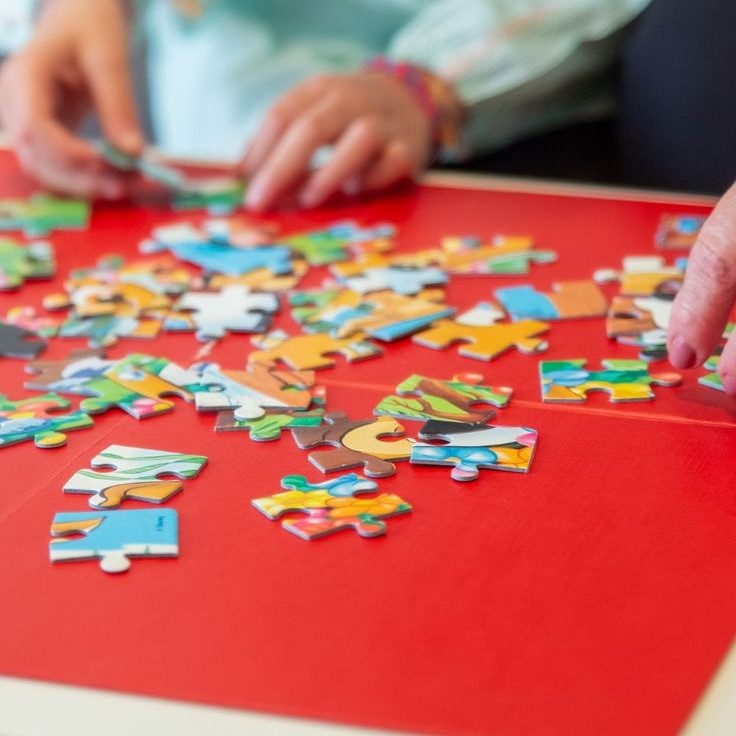
Memory improves as we notice patterns and make connections between puzzle pieces. This ability translates into better problem-solving skills. Our brains draw on memory to recognize patterns in real-life problems, allowing for quicker and more efficient solutions.
For example:
- Crossword Puzzles: These require remembering a wide range of vocabulary and trivia. As we recall and use words, our memory for language strengthens.
- Sudoku: This number puzzle demands we retain the position of digits and understand patterns to solve it. Sudoku trains our brains to remember complex sequences, boosting our numerical memory.
- Jigsaw Puzzles: Completing a jigsaw requires remembering shapes and colors, and where they fit in the big picture. As we try different combinations, we develop strategic problem-solving skills.
- Logic Puzzles: These puzzles need us to follow sequences and outcomes, helping enhance our logical thinking and sequence memory.
- Math Puzzles: They force us to remember formulas and calculations, thus supporting our problem-solving toolkit for daily math challenges.
By engaging with puzzles regularly, we provide our brains with the workout they need to maintain a sharp memory and excellent problem-solving skills. So, the answer to ‘are puzzles good for your brain’ is clearer. Yes, they are, especially when it comes to sharpening our cognitive skills.
The Role of Puzzles in Preventing Cognitive Decline
The brain’s health can decline with age, but puzzles may help prevent this process. Engaging in puzzles stimulates the brain and can reduce the chances of developing conditions such as dementia and Alzheimer’s disease. Let’s explore how puzzles contribute to preventing cognitive decline.
- Mental Stimulation: Puzzles provide a consistent mental challenge, keeping the brain active and engaged. Active brains are less likely to lose their cognitive functions.
- Memory Retention: Regular puzzle-solving reinforces the connections between brain cells, which can help maintain and improve memory.
- Delaying Deterioration: Studies indicate that those who regularly engage in puzzle activities experience a slower rate of decline in mental functions compared to those who don’t.
- Increased Brain Reserve: Building up a ‘brain reserve’ through activities like puzzles may protect against cognitive decline. It’s like saving up cognitive ‘funds’ for the future.
In conclusion, puzzles do more than entertain. They are a key factor in maintaining brain health and preventing cognitive decline. So, when pondering, ‘are puzzles good for your brain’ — they certainly are, primarily for their protective effects against age-related mental deterioration.
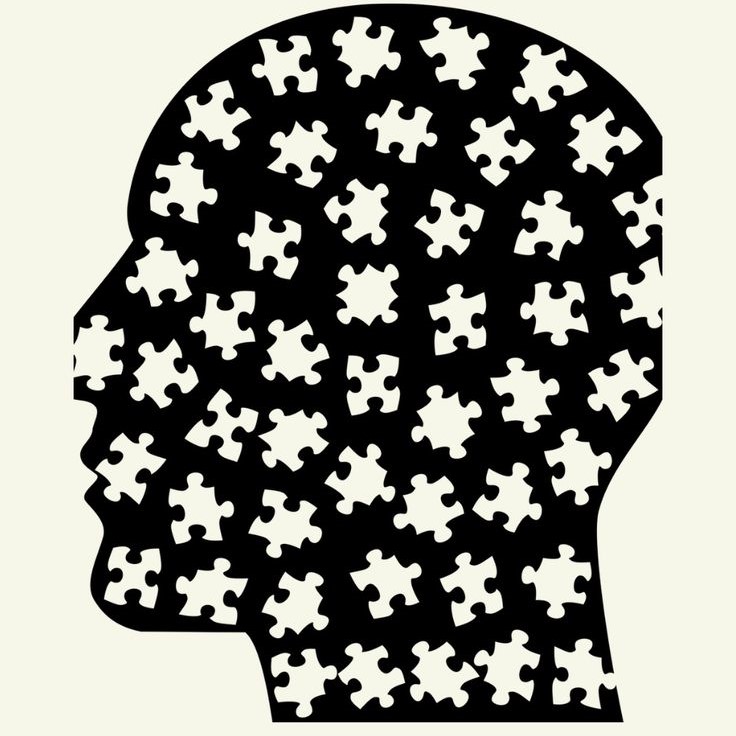
Enhancing Concentration and Focus Through Puzzle-Solving
Puzzle-solving is not only a leisure activity but also a potent exercise for the brain. It notably enhances our ability to concentrate and focus, two critical cognitive skills in both personal and professional realms. Here is how engaging in puzzle activities can sharpen these skills:
- Training for Focus: Working on puzzles demands attention to detail. It trains your brain to focus on small pieces and how they fit into the larger picture.
- Improving Concentration: Puzzles often require extended periods of thought. This helps your mind build the stamina it needs to concentrate over longer spans of time.
- Minimizing Distractions: As you become engrossed with solving puzzles, you naturally block out distractions. This heightened state of concentration can carry over into other tasks.
- Task Completion: Completing a puzzle gives a sense of accomplishment. This feeling can encourage you to stay focused until the end of other challenging tasks.
Regular puzzle-solving can lead to better performance on tasks requiring intense concentration. Whether it’s studying, working on a project, or carrying out daily tasks, puzzles fortify focus. When asking ‘are puzzles good for your brain’, consider the significant boost they provide to concentration and focus, essential elements for success in many avenues of life.
Puzzles as a Tool for Mindfulness and Stress Reduction
Puzzles are not just for brain training; they also promote mindfulness and reduce stress. This is how puzzles help us to relax and find inner calm:
Mindfulness Practice: A Meditative Experience
Focusing on a puzzle can be meditative. When you immerse yourself in solving a puzzle, your attention shifts entirely to the task at hand. This deep focus allows you to live in the moment, letting go of distracting thoughts or worries. Here’s how it works:
Living in the Present: Solving puzzles requires concentration, which naturally pulls your mind away from past regrets or future anxieties. Instead, you focus solely on the pieces or patterns in front of you.
Meditative State: Similar to meditation, working on a puzzle creates a calming rhythm. The repetitive actions, like fitting pieces together or filling in answers, help quiet the mind.
Mind-Body Connection: Engaging both your hands and mind fosters a sense of grounding. This connection enhances mindfulness, making you more aware of your surroundings and inner state.
By practicing mindfulness through puzzles, you develop a healthier relationship with your thoughts and emotions. Over time, this can lead to improved mental clarity and emotional stability.
Stress Relief: A Peaceful Escape from Daily Life
Solving puzzles distracts the mind from daily worries. Life can often feel overwhelming, with endless responsibilities and pressures. Puzzles provide a much-needed escape, offering a peaceful break from the hustle and bustle of everyday life. Consider these points:
Temporary Detachment: When you dive into a puzzle, you temporarily detach from stressors like work deadlines or personal concerns. This detachment gives your brain a chance to rest.
Relaxing Environment: Many people enjoy solving puzzles in quiet, comfortable settings. Whether it’s a cozy corner of your home or a serene outdoor space, the environment enhances relaxation.
Simple Joy: There’s something inherently satisfying about solving small challenges. Each completed section of a puzzle brings a sense of progress, which is uplifting during stressful times.
This distraction isn’t just temporary relief—it can reset your mental state. Afterward, you may find yourself returning to tasks with renewed energy and perspective.
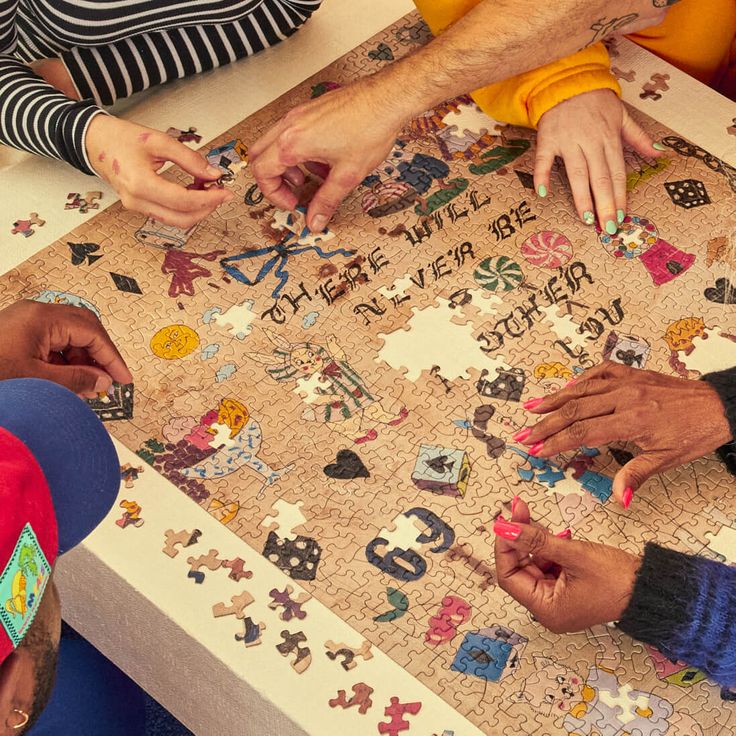
Reducing Anxiety: Calming the Mind and Easing Tension
Working on puzzles can lower your anxiety levels. Anxiety often stems from overthinking or feeling overwhelmed. Puzzles counteract these feelings by providing a structured activity that calms the mind and eases tension. Here’s why this happens:
Structured Problem-Solving: Puzzles have clear rules and objectives. This structure provides a sense of control, which can be comforting when dealing with uncertainty in other areas of life.
Calming Repetition: The repetitive nature of placing puzzle pieces or solving clues creates a soothing effect. It slows down racing thoughts and promotes relaxation.
Reduced Hyperarousal: Anxiety often involves heightened alertness or hyperarousal. Engaging in puzzles helps regulate this response, bringing your nervous system back to a balanced state.
Research supports the idea that puzzles reduce cortisol levels, the hormone associated with stress. Lower cortisol levels contribute to a calmer, more relaxed state of mind.
Achievement and Relaxation: Celebrating Small Wins
Completing a puzzle brings a profound sense of accomplishment. This success boosts your mood and relaxes your mind, creating a positive feedback loop. Here’s how achievement and relaxation go hand-in-hand:
Sense of Accomplishment: Finishing a puzzle, no matter how large or small, feels rewarding. You’ve set a goal and achieved it, which reinforces self-confidence.
Boosted Mood: Achievements trigger the release of dopamine, a neurotransmitter linked to happiness and motivation. This chemical boost improves your overall mood and well-being.
Relaxed Satisfaction: Unlike high-pressure achievements, such as meeting work targets, completing a puzzle feels effortless and enjoyable. This relaxed satisfaction contributes to long-lasting contentment.
Even partial progress, like finishing a corner of a jigsaw puzzle, offers mini-milestones. These incremental wins keep you motivated while promoting relaxation throughout the process.
By taking time to solve puzzles, you’re not only asking, ‘are puzzles good for your brain?’ but also discovering a serene escape from stress. In a busy world, puzzles serve as a welcome respite for mental health, equally valuable for their relaxing qualities as they are for cognitive development.
Incorporating Puzzles into Your Daily Routine for Brain Health
Making puzzles part of your daily life is simple and beneficial for your brain health. Here are some tips on how to incorporate these brain-boosting activities into your routine:
- Set Aside Puzzle Time: Dedicate a specific time each day for puzzle-solving. Whether it’s during your morning coffee or right before bed, having a set time helps establish a routine.
- Mix It Up: Rotate between different puzzle types. This keeps the challenge fresh and exercises various cognitive skills. One day you might work on a crossword, the next a Sudoku, and so on.
- Puzzle with Peers: Turn puzzle time into a social activity by engaging with friends or family. This adds social interaction, which is also great for your brain.
- Use Puzzle Apps: Take advantage of technology with puzzle apps. They’re a convenient way to fit in a quick puzzle session anytime, anywhere.
- Break It Down: If you’re short on time, break larger puzzles into smaller chunks. Solve a jigsaw puzzle a few pieces at a time or complete a crossword puzzle throughout the day.
- Puzzle Books: Keep a puzzle book handy at home or on the go. It’s a simple way to fill spare moments with brain-enriching activity.
- Challenge Yourself: Gradually increase puzzle difficulty levels. As you get better, tougher puzzles will continue to stimulate your brain.
Consistency is key when you’re looking to reap the cognitive rewards puzzles offer. By asking ‘are puzzles good for your brain’ and answering with a habitual puzzle routine, you ensure ongoing mental fitness and development. So keep those puzzles close and make brain health a daily priority.

Puzzles and Brain Development in Children and Adults
Puzzles do wonders for the brain at every stage of life. They engage young minds in children and keep adult brains sharp. Here’s how puzzles can aid brain development in both kids and grown-ups:
- For Children: Puzzles kickstart brain growth in ways crucial for later life. They boost problem-solving skills and enhance hand-eye coordination. Young ones learn about shapes, colors, and spatial relationships. This early brain training sets a strong foundation for future learning.
- For Adults: Adults benefit from puzzles too. They keep the mind active and can slow brain aging. Solving puzzles improves memory, sharpens focus, and fosters critical thinking. For adults asking, ‘are puzzles good for your brain’, they are a resounding yes. They provide a mental edge that aids in everyday decision-making.
Making puzzles a habit can be fun and enriching, regardless of age. They offer a mental gym for our brains to exercise regularly. So, weave them into your life and watch your cognitive skills grow. Both children and adults can enjoy the powerful impact puzzles have on their brains.


